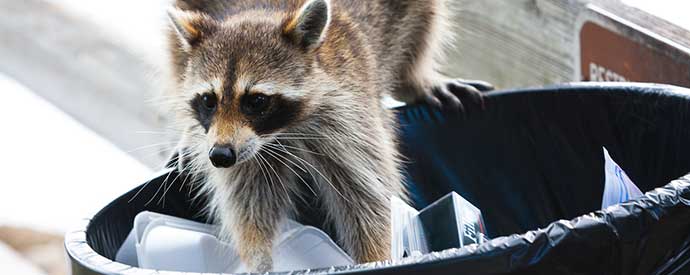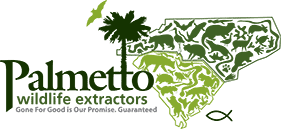
While known for their cute bandit-like eyes and careful movements, these critters have the ability to carry many infectious diseases that may detrimentally impact the health of humans and other animals. Additionally, they have the capability of scratching and biting.
If you have a raccoon or two lingering in or around your property, it is time to seek out raccoon removal services. Continue reading to learn about the infectious diseases carried by raccoons.
Transmission
There are, typically, two main methods of disease transmission from raccoons to people and/or animals. The first is direct contact with the infected raccoon. The second is by coming in contact with the waste left behind by raccoons.
This waste may include secretions of bodily fluids, feces, hair, and skin. Raccoons are known to shed parasites, viruses, and bacteria as they move and live. If people or animals come in contact with these substances, their risk for contracting an infectious disease is drastically increased.
In short, if you have an issue with even just one raccoon, you must enlist the assistance of raccoon removal services in order to properly protect your health.
The Infectious Diseases
The following provides an outline of the infectious diseases transmitted by raccoons, as well as a brief explanation of each:
- Baylisascaris Procyonis – This is a type of round worm that comes from a parasite that is located within the intestines of a raccoon. It lays a large amount of eggs within the intestines, which is then passed through the feces of the raccoon. If people come in contact with these eggs during the contamination stage, they will likely develop a disease called “Visceral Larval Migrans”, as well as an infection that directly impacts the central nervous system.
- Giardiasis – This is a microscopic protazoal-based infection that is found in water, soil, and other areas that have been contaminated by raccoons. If this disease is caught, the sufferer will experience severe distress of the gastrointestinal system.
- Leptospirosis – This is an infectious bacterial infection that is found in the urine and bodily fluids of raccoons. Humans and animals may contract this disease through the mouth or through an open wound or sore.
- Rabies – If a raccoon becomes infected with rabies and bite or scratch another animal or a person, they may pass on rabies. In fact, it has been established that raccoons are the most common type of animal to carry and pass on rabies.
- Other Illnesses – There are several other infectious diseases that may be spread to people and animals that stem from raccoons. These include salmonella, E. Coli, and those that are similar in nature.
Raccoons pose many significant health hazards. Many come from direct contact while others come from contacting debris left behind by raccoons.
If you have a raccoon issue, contact us today!

